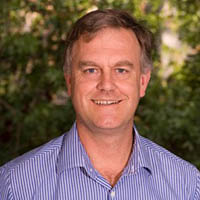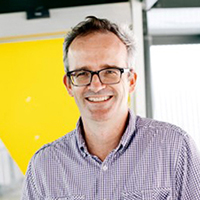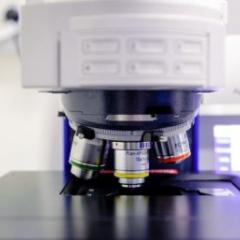


School of Chemistry and Molecular Biosciences (SCMB) researchers have been successful in the latest Australian Research Council grants round, pairing with industry in Linkage Project grants, supporting an Industrial Transformation Training Centre grant, and earning an ARC Laureate Fellowship.
SCMB researchers Professor Paul Young (Head of School), Professor Ross Barnard, and Dr Ben Schulz featured on an Industrial Transformation Training Centre grant for the new ARC Training Centre for Biopharmaceutical Innovation, awarded $4.3 million ARC funding.
Professor Young said this centre aimed to transform Australia’s growing biopharmaceutical industry, an advanced manufacturing capability, by training specialist biotechnologists and bioengineers.
“We expect the research and development outputs will create new biopharmaceuticals and antibody-based reagents, enhanced production methods, improved manufacturing capabilities and a cohort of specialist scientists,” he said.
“New biopharmaceuticals are expected to benefit the Australian economy and provide new therapeutic options for better health outcomes. Industry-driven research projects will also provide industry-ready graduates who can drive future growth in the sector.”
Industry partners are CSL Limited; GE Healthcare; Australian Red Cross Blood Service; Patheon Biologics Australia Pty Ltd.
Professor Paul Burn FAA FRSC won one of only two prestigious ARC Australian Laureate Fellowships made to The University of Queensland in the latest round.
Successful projects with SCMB collaboration
SCMB researchers were chief Investigators in successful applications led by other Schools and research centres. Projects and SCMB researchers were:
From tailings to soil: in situ remediation in mine site rehabilitation - ARC funding $325,000
By enhancing and guiding abiotic and biotic processes of soil development, this project aims to accelerate the in situ remediation of bauxite residue (alumina refining tailings). Over seven gigatonnes of tailings are produced globally every year, comprising complex mineral assemblages at extremes of pH and salinity with minimal biological activity. This project will build detailed knowledge on the chemical, physical, and biological properties of bauxite residue and apply this to develop field-scale in situ remediation strategies. This research will also advance understanding of soil development and primary succession of microbial communities in extreme, anthropogenic environments such as those presented by tailings.
- SCMB chief investigator: Professor Gene Tyson of the School of Chemistry and Molecular Biosciences, in a Sustainable Minerals Institute-led application.
- Industry partners: International Aluminium Institute; Alcoa of Australia Limited.
Rapid functional and taxonomic skin microbe characterisation - ARC funding $388,000
This project aims to develop methods to detect and characterise bioactive molecules released by skin microbes, and a novel microspectroscopy method for rapid taxonomic identification. This project will acquire independent spectra and develop classification algorithms, and participate in strategic planning for applications and product development. The expected outcomes from this project are research tools for skin microbiome modulation of immunity, and proof-of-concept data for future commercial product development. Potential commercial applications include microbial characterisation for biosecurity, agriculture, environmental and soil biology.
- SCMB chief investigator: Professor Philip Hugenholtz, of the School of Chemistry and Molecular Biosciences, is a chief investigator on this Diamantina Institute-led application.
- Industry partners: Agilent Technologies Australia Pty Ltd.



